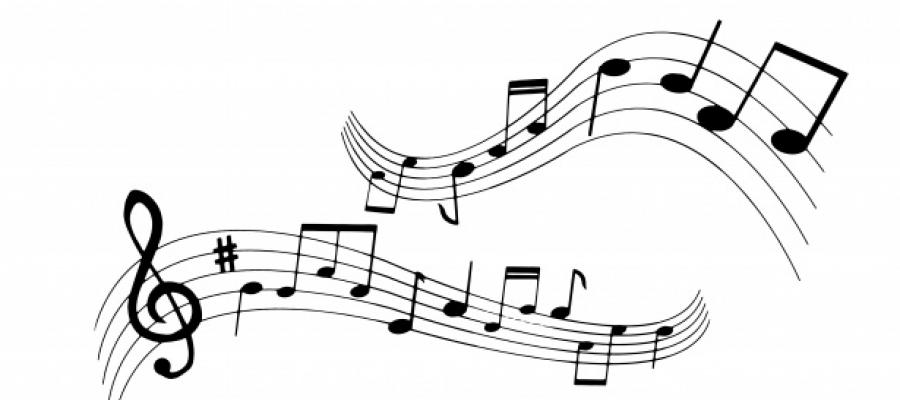Embrace Recovery Vibes: The Ultimate Recovery Music Experience
Embrace Recovery Vibes: The Ultimate Recovery Music Experience
Blog Article
The Influence of Music on Emotions and Mental Well-being
In the realm of psychology and health, the extensive influence of music on emotions and psychological health has actually long been a topic of rate of interest and research. From affecting mood to serving as a powerful device for anxiety management, songs's duty in forming psychological health and wellness is deserving and complex of additional exploration.
Impact of Music on Mood

Research has revealed that songs can regulate mood by turning on neural paths related to emotions in the brain. Listening to music can stimulate the release of natural chemicals like dopamine and serotonin, which are recognized to manage state of mind and feelings. This physical response to music describes why particular tunes can quickly boost our spirits or bring splits to our eyes. Recognizing how music influences mood can have significant implications for utilizing music as a restorative tool for emotional policy and mental well-being.
Connection Between Songs and Stress And Anxiety
The interaction in between musical stimuli and the human response to stress and anxiety has actually been a subject of growing interest in the areas of psychology and neuroscience (MUSIC). Songs has actually shown amazing potential in mitigating stress degrees and promoting relaxation. Studies have actually suggested that listening to songs can cause physiological changes in the body, such as lowered heart rate, lower blood stress, and reduced levels of cortisol - a hormonal agent related to tension
The link between music and stress and anxiety relief is believed to be very closely connected to the impact of music on the limbic system, which plays a vital role in emotions and anxiety feedbacks. Furthermore, individual music preferences can likewise affect the stress-reducing results of songs, highlighting the significance of personalized techniques when making use of songs as a stress management device.
Songs as a Therapeutic Tool

Research has actually revealed that songs treatment can substantially minimize stress and anxiety, depression, and persistent discomfort. It has been particularly beneficial for people with mental health problems, developmental impairments, and those undertaking clinical treatments. Music has the capacity to evoke memories, stimulate favorable emotions, and give a sense of comfort and leisure. Furthermore, songs treatment can improve cognitive feature, motor abilities, and social interactions.
Impact of Music on Mental Health

Recognized for its effectiveness in reducing an array of psychological worries, songs's influence on psychological health is a topic of expanding passion and research study. Songs here has actually been found to have extensive results on mental health and wellness by influencing state of mind, reducing anxiety, and boosting general wellness. Study indicates that listening to songs can boost the launch of neurotransmitters like dopamine and serotonin, which are connected with pleasure and mood law. This can lead to reduced symptoms of anxiety and anxiety. In addition, music therapy, an organized use songs to improve psychological health results, has been revealed to be beneficial for people with various mental health problems, consisting of post-traumatic stress condition (PTSD), schizophrenia, and mental deterioration - MUSIC. Music can offer as a kind of self-expression and emotional release, providing individuals with a healthy outlet for their feelings. On the whole, link the influence of music on mental health and wellness is a promising area of research that offers possible therapeutic benefits for people facing various psychological health and wellness challenges.
Ways to Incorporate Songs for Well-being
An efficient method to improve wellness through music is by incorporating tailored playlists customized to private preferences and moods. Songs has the power to stimulate emotions and influence our frame of mind, making it a valuable device for advertising health. One means to include music for well-being is by creating playlists that reverberate with certain emotions or objectives. Developing a playlist of positive tracks for an early morning boost or kicking back tunes for anxiety alleviation can be advantageous.
One more way to use songs for well-being is via active listening. Putting in the time to really engage with the music, concentrating on the lyrics, tools, and overall make-up, can deepen the psychological connection and magnify the therapeutic impacts. This conscious method to paying attention can help individuals procedure emotions, decrease anxiousness, and improve general psychological health.
Furthermore, going to real-time songs occasions or concerts can likewise add to well-being by offering a feeling of link, area, and delight. Belonging to a common music experience can boost spirits, foster a sense of belonging, and produce enduring memories that favorably influence psychological well-being.
Conclusion
Finally, songs has a substantial influence on emotions and mental well-being. It can influence mood, decrease tension, and serve as a restorative device for improving mental health. Incorporating music into day-to-day routines can boost overall well-being and add to a positive way of thinking. It is her response essential to acknowledge the power of songs in promoting emotional balance and psychological quality.
The relationship between songs and state of mind is elaborate, with various aspects of music such as tempo, mode, and pitch playing key roles in eliciting emotional feedbacks. Comprehending how music affects state of mind can have significant ramifications for making use of songs as a restorative tool for psychological regulation and psychological wellness.
The connection in between music and stress alleviation is believed to be very closely connected to the impact of songs on the limbic system, which plays an essential function in emotions and stress feedbacks. Furthermore, individual music choices can likewise affect the stress-reducing impacts of songs, highlighting the significance of customized methods when making use of music as a tension management device. Additionally, music treatment, a structured usage of songs to enhance psychological health results, has actually been shown to be beneficial for individuals with numerous mental health and wellness problems, including post-traumatic anxiety disorder (PTSD), schizophrenia, and dementia.
Report this page